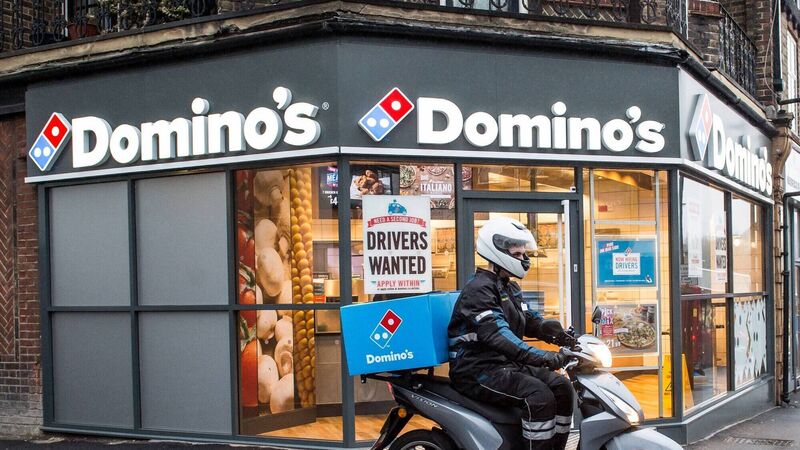Domino's Pizza profits fall 16% as inflation costs hit in Britain and Ireland

Domino's in March introduced delivery charges to allow 'franchisees to offset some of the food and labour cost inflation which they are experiencing'.
Pre-tax profits at Domino's Pizza, which owns more than 1,240 franchised and group-owned outlets in Britain and Ireland, fell by over 16% in the first six months as escalating costs for wheat and inflation in its distribution chain caught up with the company.
The Milton Keyes-based company does not break out the results between its British and Irish operations, but it said its underlying pre-tax profit had fallen to £51m (€61m) despite sales remaining "strong" in the period. A joint venture in the North and an associate firm in Germany contributed to the profits.












